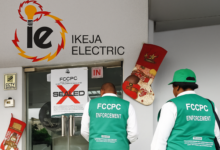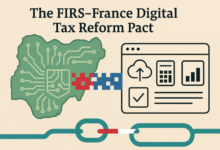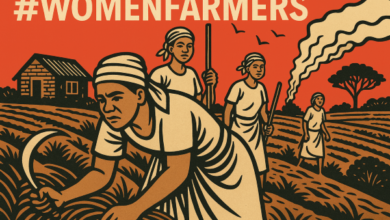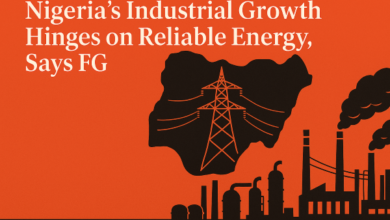Cooking gas: Nigerians decry continuous price increase, economist blames high exchange rate

Many residents of the Federal Capital Territory (FCT), on Sunday, decried the continuous increase in the price of cooking gas.
According to them, cooking gas has gone beyond the reach of the common man.
BRANDPOWER reports that the latest Cooking Gas Price report ’ from the National Bureau of Statistics (NBS) states that the average price of 5kg of cooking gas increased from N4,115.32 recorded in August 2023 to N4,189.96 in September 2023.
The average retail price for 12.5kg cooking gas increased by 0.35 per cent from N9,162.11 in July 2023 to N9,194.41 in August 2023.
BRANDPOWER reports that the average price of cooking gas witnessed a decline in April, May and June with 5kg selling at N4,642.27, N4,360.69 and N4,068.26, respectively.
While the 12 kg sold at N10,323.33, N9,537.89, and N9,123.25, respectively.
However, from the month of July cooking gas resumed a steady increase.
Mrs Beatrice Onifade, a Public Servant said she bought 12.5kg cooking gas at N12,500 on Nov. 2.
Onifade while lamenting the increasing cost of cooking gas, said she had to caution everyone in her house to manage the usage of gas.
“I told them when you are cooking don’t go away, you must remain in the kitchen and be on standby.”
She, however, said she had to use charcoal as an alternative source for cooking because she had a large family and using gas alone was not sustainable.
“Using charcoal is more economical because I use it to cook in large quantities like for moimoi or to boil my tomatoes.
“I just mount my charcoal stand behind my house but this is because I do not have neighbours in the same compound, so I am not disturbing anybody. ”
Mrs Debisi Ajayi, a Civil servant, said she bought 12.5kg at N11,570 on October 29, as against N9,000 she bought in July.
“Everyone was happy when the price of cooking gas came down some months ago but before we knew it, it increased.
” I do not have an alternative cooking source, I rely on gas alone.”
On how she was coping, Ajayi said she was able to manage her gas usage by using electricity to boil water.
“Before, I could put a big pot of water on the fire for bathing for the children but I can not try that now.
“Thank God the light situation in my area is not very bad so I use an electric kettle to boil water for bathing and even cooking that requires hot water like rice.
“So, you have to calculate now. I have warned my children when we have to use gas to boil water for bathing or cooking to be vigilant so the water does not boil over, thereby, wasting the gas.
She said the economic situation in the country had become unbearable with the prices of everything going up daily, adding that spending so much on just cooking gas was not sustainable.
Mrs Doyin Adewunmi, a businesswoman, said she bought 50kg at N56,000 in the middle of September.
Adewumi said the increase in dollars and insecurity in the country were contributory factors to the continuous increase in the prices of commodities.
She said the environment she lived in could not allow her to use an alternative cooking source like charcoal, as she called on the government to immediately address the hike in prices.
“It is not easy on a lot of families now; the suffering and hardship are real. The prices of everything go up every day and you are forced to buy because these are essential needs in the home.
“The government needs to regulate some of these things immediately and make the business environment easy for business owners.
“I am calling on the government to look into the plight of the people and see how to address some of these issues to make life easier for Nigerians.
“Some of us voted this government in and they must fulfil their mandate and the promises they made to Nigerians,” she said.
Mrs Fatima Lawal, a Civil Servant said she bought 12 kg of cooking gas at N850 per kg on October 25, as she decried the increasing cost.
“It is difficult to manage with children in the house. The poor power situation is not helping matters because there is no light to boil water for the kids to take their bath, so you are forced to use gas.
“The gas does not even last up to three weeks, so how can anyone cope with other demands of the household?
” The government needs to help Nigerians, the suffering is just too much,” she said.
Dr Ayo Anthony, an Economist attributed the increasing price of cooking gas to two variables- shortage of supply and the exchange rate.
Anthony said the demand for cooking gas elasticity was very high because it was an essential commodity.
“You know cooking gas is an essential commodity, and most households today are moving away from using firewood and kerosene. The average household today uses cooking gas.
“So, it means that demand is on the high side. So immediately demand is not equal to supply, the price will equally jack up.
“The other time when the prices came down, I guess it was the supply that overturned the demand.
“But now it seems the demands are overshooting the supply, maybe there is a disruption in the supply chain of cooking gas.
“From what I learnt, this cooking gas is not all domestically produced in Nigeria. Some are also imported and the nature of the exchange rate is also a factor. ”
He explained that the exchange rate three years ago was not the same as it is now and the market price of imported items must reflect the exchange rate volatility.
Anthony, however, said to address these causes the Federal Government had to boost the country’s source of foreign exchange which was a monetary issue.
“When we boost the source of our foreign earnings, the supply of cooking gas will definitely be more than the demand.
https://www.nigerianstat.gov.ng/
“This will have a positive impact also on prices of imported items because most of these imported items are not regulated, they are price-driven by demand and supply of dollars.
“So if we can boost our supply of foreign currency, the pressure on the limited available one will reduce.”
He said another solution to the incessant hike in cooking gas was from the fiscal policy side.
Anthony said there was a need to look inward at what was preventing the petroleum sector from producing enough cooking gas domestically to meet the demands of households.
“Why should we import cooking gas? assuming it is produced domestically, the exchange rate will not be a factor that will determine the price of cooking gas.
“So, we have to look at our supply side of cooking gas in Nigeria. Why can’t we domestically produce the volume of cooking gas that will meet the household demand for this commodity?
“So like I said, the major problem is the supply and the exchange rate is part of the supply, ” he said.










